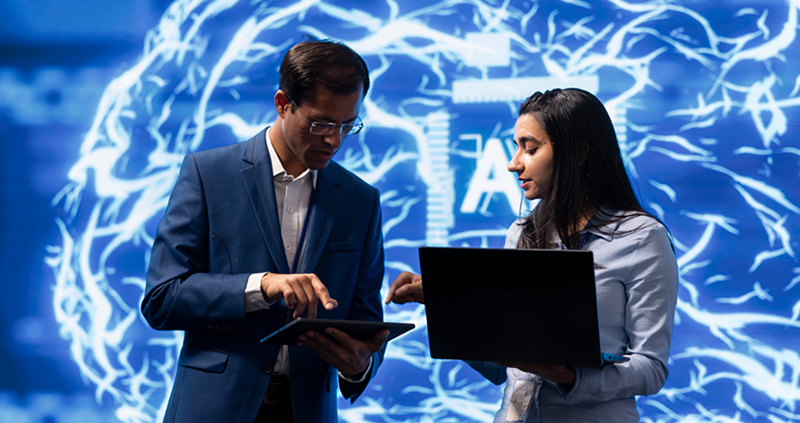
Ifeoma Ajunwa, Founding Director
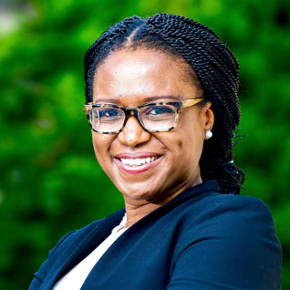
In addition to writing dozens of academic articles, Ajunwa was a columnist at Forbes, and published op-eds in the New York Times, Nature, Washington Post, Harvard Business Review, Wired, Slate and The Atlantic, among others. She contributes to Jotwell’s Cyberlaw section and the Law and Political Economy (LPE) blog. Ajunwa’s legal commentary has been featured on National Public Radio (NPR), the Wall Street Journal, CNN, the Guardian, and the BBC. She has testified before Congress (the US House Committee on Education and Labor) and the Equal Employment Opportunity Commission. She is a Founding Board Member of the Labor Tech Research Network, a regular keynote speaker, and advisory board member for Fortune 500 tech companies.
Books:
The Quantified Worker: Technology in the Modern Workplace (2023).
The Oxford Handbook on Algorithmic Governance and the Law (2025)
Representative Articles on A.I. and Law:
(all available for free download on SSRN.com)
- "A.I. and Captured Capital," Yale Law Journal Forum (forthcoming 2025).
- "Artificial Intelligence, Afrofuturism, and Economic Justice," 112 Geo L. J. 1267 (2024).
- "Automated Governance," 101 N.C.L.Rev 355 (2023).
- "Automated Video Interviewing as the New Phrenology," 36 Berkeley Tech. L.J. 1173 (2022).
- "The Auditing Imperative for Automated Hiring," 34 Harv. J.L. & Tech. 621 (2021).
- "The Paradox of Automation as Anti-Bias Intervention," 41 Cardozo. L. Rev. 1671 (2020).
- "Age Discrimination by Platforms," 40 Berkeley J. Emp. & Lab. L.1 (2019)
- "Algorithms at Work: Productivity Monitoring Applications and Wearable Technology," 63 St. Louis U. L.J. 21 (2019).
- "Platforms at Work: Automated Hiring Platforms and Other New Intermediaries in the Organization of the Workplace" (with Daniel Greene).
Op-eds:
- Unfair Automated Systems Are Everywhere, WIRED, May 15, 2023
- "Tech Firms Need Black AI Scholars and Labor Rights," Nature, February 12, 2021
- '"Beware of Automated Hiring," NY Times, October 8, 2019.
- "The Rise of Platform Authoritarianism, ACLU Blog, April 10, 2018.
- "Corporate Surveillance is Turning Human Workers into Fungible Cogs," The Atlantic, May 19, 2017.
Isabel Brandt, Program Coordinator

Isabel Brandt is the Program Coordinator for the AI and the Future of Work Program at Emory University School of Law and a current senior at Emory College pursuing a BA in International Studies. Isabel is involved in research related to AI and the law as an undergraduate fellow with Emory Law’s Center for Law and Social Science, and has previously served as a research assistant in Emory’s department of Art History.
Yinn-Ching Lu, SJD Student and Research Scholar, AI and the Future of Work
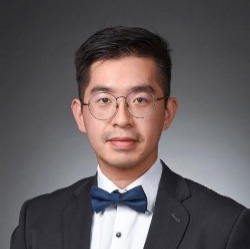
Yinn-Ching served as a law clerk at the Taiwan Constitutional Court from 2021 to 2023 and practiced law in Taiwan from 2017 to 2021. He holds an LL.B. degree from National Chengchi University and two LL.M. degrees from National Taiwan University and the University of Chicago Law School. He is currently pursuing an S.J.D. at Emory University.
Kevin Harris, AI and the Future of Work Fellow
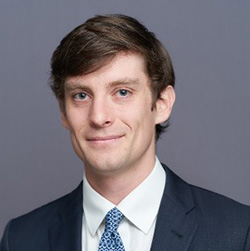
Chioma Madu, AI and the Future of Work Fellow
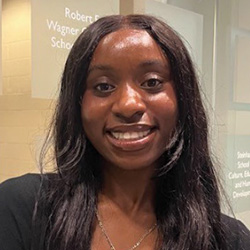
Chioma Madu is a recent graduate of New York University’s Gallatin School of Individualized Study. Her concentration, “Race and Algorithms,” explores how the history of technology is intertwined with colonialism, capitalism, surveillance, and the commodification of labor. She focuses on the ways technologies such as biometrics have historically been used to surveil and police Black bodies and other marginalized communities. Through her courses, she studied various concepts, including cybersecurity, implicit bias in machines, data privacy, and the legal implications of technology. Madu is interested in Black archival research, racialized technology, AI and surveillance technologies, humanism/posthumanism, Afrofuturism, and technology public policy.
Affiliated Faculty
S. I. Strong
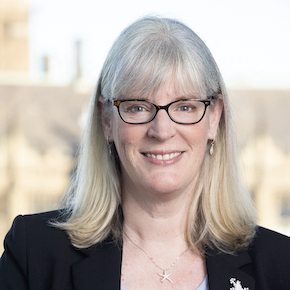
Strong has served as a US Supreme Court Fellow and as the Henry G. Schermers Fellow at the Netherlands Institute for Advanced Study in the Humanities and Social Sciences. She has also held visiting fellowships at the British Institute of International and Comparative Law in London, the Max Planck Institute for Comparative and International Private Law in Hamburg, and the Lauterpacht Centre for International Law in Cambridge. Before entering the legal academy, Strong practiced as a US-qualified lawyer and English solicitor with major international law firms in New York, London and Chicago.
Strong's scholarship in A.I. focuses on the interaction of A.I. with civil justice systems, including both litigation and arbitration. Among other things, Strong undertakes interdisciplinary studies to understand how A.I. affects individual workers, work processes, and the legal profession.
Works
- “Green Arbitration and Artificial Intelligence: Mutually Supportive or Mutually Exclusive?,” in Unveiling Arbitration’s (New) Identity in a Changing World (anticipated 2026)
- “Artificial Intelligence in Civil Proceedings in the United States,” 74 American Journal of Comparative Law __ (forthcoming 2026)
- “Artificial Intelligence in Civil Justice Systems: An Empirical and Interdisciplinary Analysis and Proposal for Moving Forward,” 41 Ohio State Journal on Dispute Resolution __ (forthcoming 2026)
- “Responsible Regulation of Artificial Intelligence in the Legal Profession Through A Split Bar: Implications for Legal Educators,” 79 Washington University Journal of Law & Policy __ (forthcoming 2025)
- “Regulating Generative Artificial Intelligence in Domestic and International Arbitration: A Content-Neutral Blueprint for Action,” 34 American Review of International Arbitration 745 (2023)
- “Rage Against the Machine: Who is Responsible for Regulating Generative Artificial Intelligence in Domestic and Cross-Border Litigation?” 2023 University of Illinois Law Review Online 165 (2023)